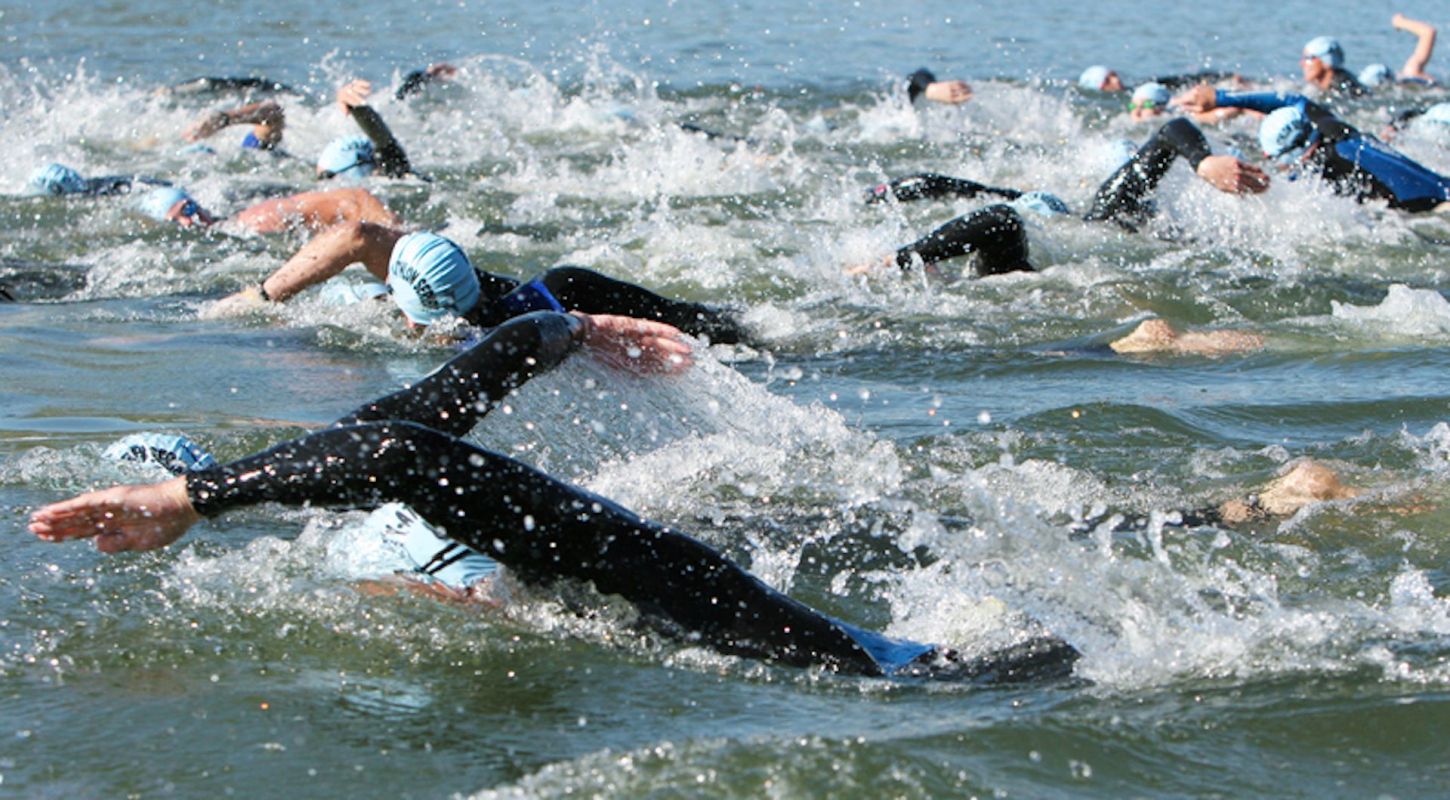Multiple participants in the World Triathlon Championship Series were struck down with illness after completing the Sunderland leg of the tour in England in July.
Now, health officials have identified the most likely cause of the sickness that affected 88 people.
What happened?
According to the BBC, the UK Health Security Agency (UKHSA) studied samples from 43 athletes who complained of vomiting and diarrhea after featuring in the competition.
A number of the tests came back showing signs of norovirus, with 19 of 31 samples containing the virus. The other 12 were either negative for that specific virus or had positive readings for other viruses.
The UKHSA noted that while it's clear norovirus was responsible for the illnesses experienced by a number of participants, there is no evidence to suggest how it was spread between the group.
"Norovirus is very easily transmitted through contact with people with the infection and any food, water, surfaces or objects that have been contaminated with the virus," the health body said, per the BBC.
"Although investigations continue, the exact source of the infections may not be possible to determine."
A 2022 study published by the Center for Diagnostics and Vaccine Development and Centers for Disease Control in Taipei, Taiwan, said norovirus infections could increase because of increasing population density and the rise in flooding events linked to a warming climate.
The research said increased rainfall and runoff could help the spread of the diseases, which may be able to survive in the environment for longer in these conditions.
Why is this so concerning?
England and some other areas in the United Kingdom have seen record amounts of raw sewage leaked into waterways in recent months.
According to the Guardian, more than 384,000 discharges of raw sewage by water companies were recorded in England and Wales last year.
With that, water quality has been under scrutiny in the country, with fears that bacteria like E. coli could find their way to rivers.
Speaking to the Guardian, a spokesperson for the Rivers Trust said: "Spilling raw sewage into rivers is extremely bad news for environmental and human health, sending all sorts of unpleasant substances into waterways that shouldn't be there."
Water quality tests in July found high E. coli levels in the Sunderland waters, the BBC reported, but British Triathlon said these tests were conducted outside the swimming area.
The lab results did not find E. coli O157/STEC, which can lead to gastrointestinal illnesses, but the UKHSA found E. coli in four of its samples.
The Mayo Clinic says E. coli can cause nausea, vomiting, diarrhea and stomach cramping, but in more severe cases, it can lead to kidney failure.
What can be done to prevent sewage entering waterways?
Water companies like Thames Water, United Utilities, and Dŵr Cymru (Welsh Water) have pledged to invest in storm overflows, which contribute to sewage discharges if not properly maintained or built up to an appropriate standard.
Meanwhile, the Guardian reported a class-action lawsuit has been filed against six water companies, including the three mentioned above, who have been accused of failing to disclose the full data on sewage discharges.
Join our free newsletter for cool news and cool tips that make it easy to help yourself while helping the planet.









